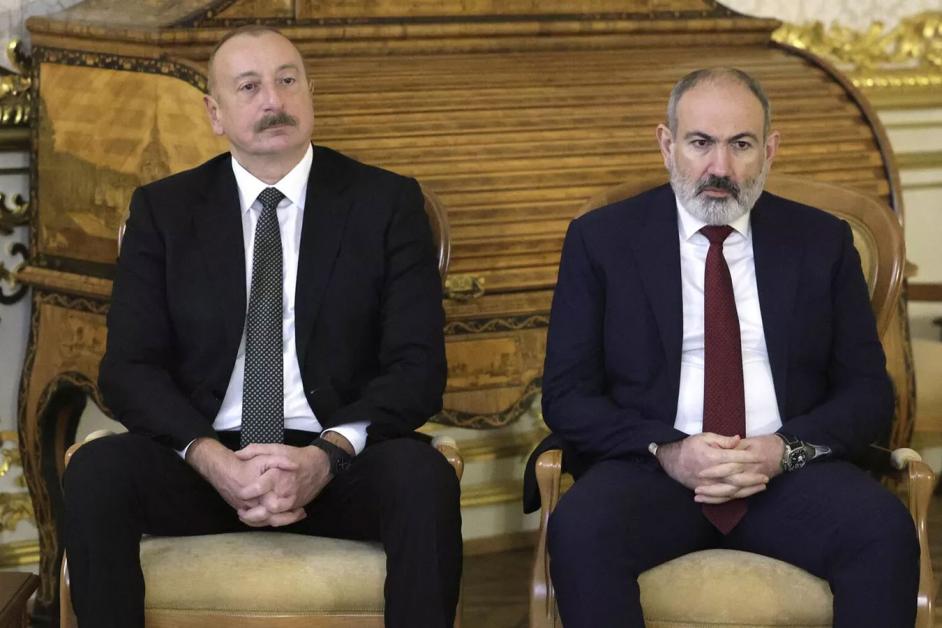
Baku will not present a demand to Armenia in two cases
Political scientist Stepan Hasan-Jalalyan writes: "2024 On July 20-22, during the second global media forum held in the city of Shushi in the occupied Artsakh Republic, on July 20, the occupying and genocidal artificial fake entity, the so-called Sultan Ilham of Azerbaijan, spoke about the possibility of signing a peace treaty between Armenia and Azerbaijan, in particular, declared. “…there are two important issues that need to be addressed. At least two at the moment. First, Armenia should respond positively to our proposal to submit a joint application by Armenia and Azerbaijan to the OSCE with a request to dissolve the Minsk Group... Armenia does not agree...
Second, the amendment of the Constitution of Armenia. And I want to say again that our actions are not interference in their affairs, not at all. In the Constitution of Armenia, there are references to the Declaration of Independence, which represents an obvious territorial threat to Azerbaijan, because it talks about the so-called unification of Nagorno-Karabakh with Armenia. In other words, as long as this clause exists, a peace agreement is impossible."
Let us consider the demands of Sultan Ilham of Absheron separately.
So, what is Ilham's goal in dissolving the OSCE Minsk Group?
1992 On March 24, the first additional meeting of the Council of the Conference on Security and Cooperation in Europe (CSCE) was held in the capital of Finland, Helsinki. A summary of the conclusions (hereinafter referred to as the summary) was published on the results of the meeting.
In particular, in point 11 of the summary, the following was recorded. "The Ministers took note of the commitment of Armenia and Azerbaijan to fully support the mission of the CSCE Council Presidency in the region, as well as the actions agreed upon by the CSCE Council, and call on these two countries to actively pursue this commitment to achieve ( of the conflict - S. H.-J.) for a lasting, peaceful solution."
It is clear from the quote that Azerbaijan, along with Armenia, has also committed to the settlement of the Azerbaijani-Artsakh conflict:
• to support the mission and actions of the Council of the CSCE in the region,
• resolve the Azerbaijani-Artsakh conflict peacefully.
From the 8th and 9th points of the summary, it is known that for the purpose of negotiations on the peaceful settlement of the Azerbaijani-Artsakh conflict (ASCS), the Council decided to convene a conference of 11 countries: Armenia, Azerbaijan, Belarus, Germany, Italy, the Russian Federation, America, in Minsk, the capital of Belarus. With the participation of the United States, Turkey, France, the Czech Republic and the Slovak Federal Republic and Sweden.
Elected and other representatives of Nagorno-Karabakh as interested parties will be invited to the conference by its president after consultations with the states participating in the conference.
Due to the escalation of military operations, the mentioned conference was never convened, but the name - Minsk Conference - was preserved. The Minsk Conference turned into the Minsk Group, the first session of which was held not in Minsk, but in Rome in 1992. on June 1-5.
1994 During the CSCE/OSCE summit held on December 5-6 in Budapest, the capital of Hungary, it was decided to appoint the co-chairs of the OSCE Minsk Conference in order to create a common and agreed basis for negotiations.
According to the decision of the Budapest summit, in 1995 On March 23, the OSCE chairman gave a mandate to the co-chairs of the Minsk Group - Russia, the USA and France - to ensure the negotiation process and create an appropriate basis for the settlement of the conflict.
The Minsk Co-Chairmanship Institute began to operate in 1997. from February 14.
It was developed by the co-chairmanship of the OSCE Minsk Group and was adopted in 2007. On November 29, in Madrid, the foreign ministers of the OSCE Minsk Group co-chair countries presented to Armenia and Azerbaijan a document on the fundamental principles of the conflict settlement, which is better known as the "Madrid Principles".
Considering the aforementioned document unacceptable from the point of view of serving the interests of the Republic of Artsakh, it is nevertheless necessary to note that the document states that the conflict should be settled, in particular, according to the principles of the right of nations to self-determination and not to use force or the threat of force.
Add new comment